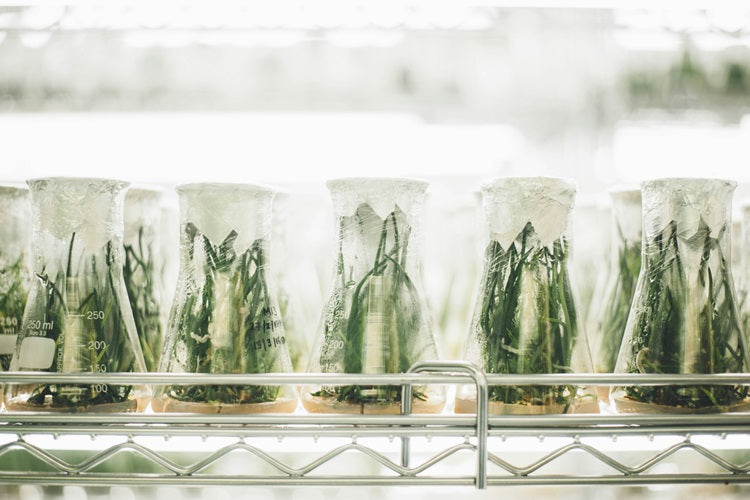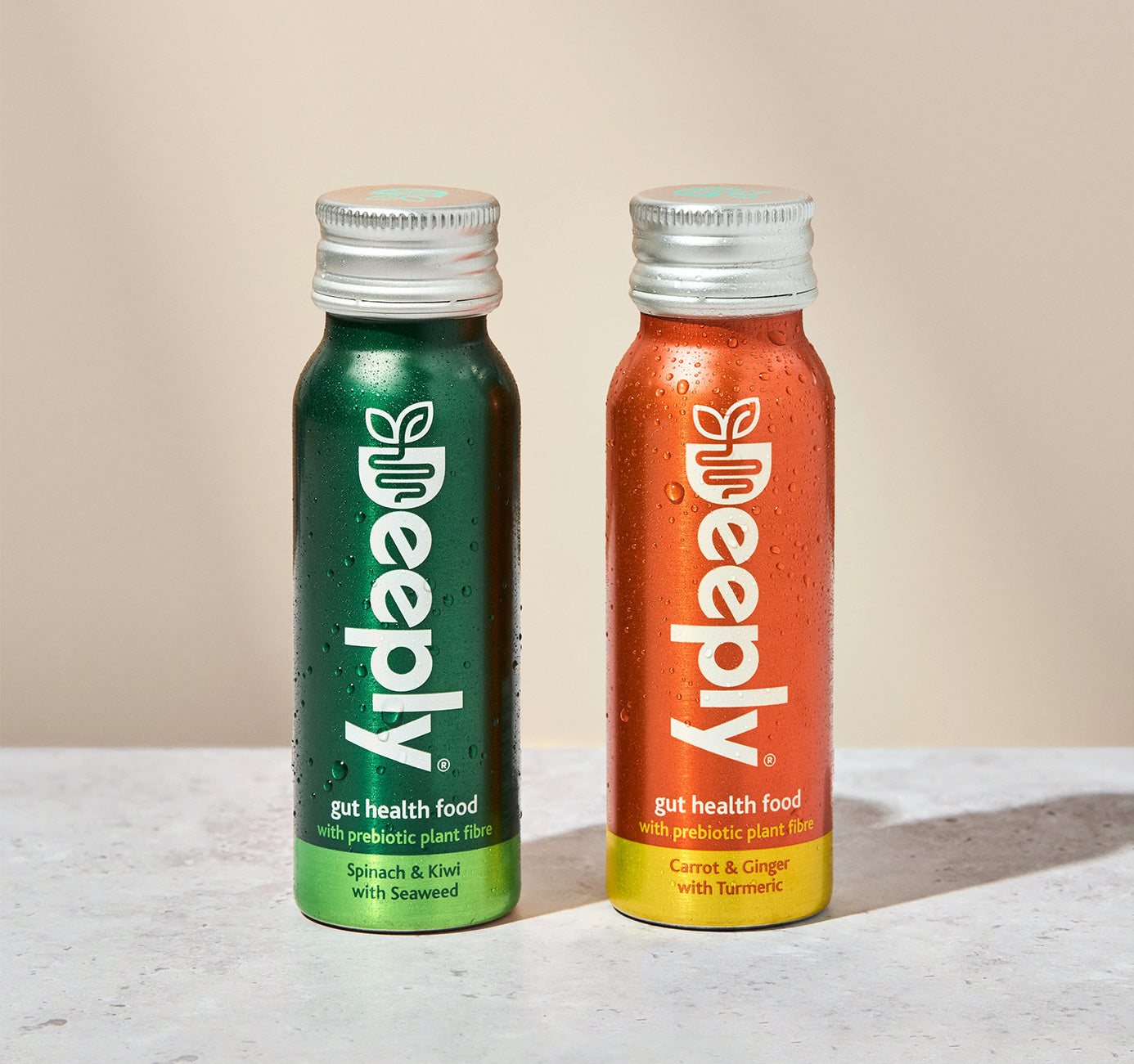
In recent years, there has been growing interest in the role of prebiotics in promoting good health. Research has shown that these dietary fibres can have a profound impact on our overall well-being. Understanding what prebiotics are and how they work is crucial to unlocking their health benefits and incorporating them into our daily lives.
Understanding Prebiotics
Before delving into the health benefits of prebiotics, let's take a closer look at what exactly they are. Prebiotics are a type of non-digestible fibre that serves as a food source for beneficial bacteria in our gut, known as probiotics. Unlike probiotics, which are live bacteria, prebiotics are indigestible and remain intact as they pass through the gastrointestinal tract.Expanding on the concept of prebiotics, it's fascinating to note that these compounds can be found in various foods such as chicory root, garlic, onions, leeks, and bananas. By incorporating a diverse range of prebiotic-rich foods into your diet, you can support the growth of beneficial bacteria in your gut, ultimately promoting overall gut health.
Defining Prebiotics
According to the International Scientific Association for Probiotics and Prebiotics (ISAPP), prebiotics are "substrates that are selectively utilized by host microorganisms, conferring a health benefit." In simpler terms, prebiotics are the nourishment that probiotics need to thrive and carry out their beneficial functions in our bodies.
Furthermore, prebiotics are not only beneficial for gut health but also have a positive impact on overall well-being. Research suggests that a diet rich in prebiotics can help reduce inflammation in the body, lower the risk of certain chronic diseases, and even aid in weight management by promoting feelings of fullness and satiety.
The Role of Prebiotics in the Body
Prebiotics play a crucial role in maintaining a healthy gut microbiota, which is a diverse and balanced community of microorganisms residing in our digestive system. A thriving gut microbiota is linked to numerous health benefits, including a stronger immune system, better digestion, and improved mental well-being.
Moreover, the relationship between prebiotics and probiotics is symbiotic, meaning they work together in harmony to support our health. While probiotics introduce beneficial bacteria into the gut, prebiotics act as the fuel that allows these bacteria to flourish and exert their positive effects on our overall health. By understanding and incorporating both prebiotics and probiotics into our diets, we can take significant steps towards enhancing our well-being from the inside out.
The Health Benefits of Prebiotics
Now that we understand the basics of prebiotics, let's explore the specific ways in which they can contribute to our overall health.
Prebiotics are non-digestible fibres that serve as food for probiotics, the beneficial bacteria in our gut. By nourishing these friendly microbes, prebiotics help maintain a healthy balance of gut flora, which is essential for various aspects of our well-being.
Boosting Digestive Health
One of the primary benefits of prebiotics is their ability to stimulate the growth and activity of beneficial bacteria in the gut. As these bacteria break down prebiotic fibres, they produce short-chain fatty acids, such as butyrate. These fatty acids provide nourishment to the cells lining our digestive tract, promoting their optimal function and supporting a healthy gut.
Furthermore, prebiotics help increase the production of mucin, a substance that forms a protective barrier in the gut lining. This barrier helps prevent harmful pathogens and toxins from crossing into the bloodstream, reducing the risk of infections and inflammation.
Enhancing Immune Function
A robust immune system is vital for fighting off pathogens and preventing illness. Prebiotics have been shown to enhance the activity of immune cells, such as natural killer cells and lymphocytes, which play a key role in immune defence. By supporting the growth of beneficial bacteria, prebiotics help maintain a balanced immune response, reducing the risk of inflammation and autoimmune disorders.
Moreover, prebiotics promote the production of antimicrobial peptides in the gut, which are natural antibiotics that help combat harmful bacteria and pathogens. This additional line of defence strengthens the immune system's ability to ward off infections and maintain overall health.
Supporting Mental Health
Increasing evidence suggests a strong link between the gut and the brain, known as the gut-brain axis. Prebiotics play a role in improving mental health by modulating the gut microbiota. Research has shown that certain strains of beneficial bacteria stimulated by prebiotics can produce neurotransmitters, like serotonin, which play a crucial role in regulating mood and anxiety.
Furthermore, prebiotics help reduce gut permeability, also known as "leaky gut," which has been linked to various mental health conditions, including depression and anxiety. By maintaining a healthy gut barrier, prebiotics can potentially alleviate symptoms of these disorders and promote overall mental well-being.
Prebiotics vs Probiotics: The Differences
While prebiotics and probiotics are often mentioned together, it's important to understand that they are not the same.
When it comes to gut health, the distinction between prebiotics and probiotics is crucial. Prebiotics are a type of fibre that humans cannot digest, but they serve as nourishment for the beneficial bacteria in the gut. This fibre passes through the digestive system and ferments in the colon, producing short-chain fatty acids that provide energy for the cells lining the colon. In essence, prebiotics act as fertilizer for the probiotics, helping them thrive and multiply.
What are Probiotics?
Probiotics are live microorganisms that, when consumed in adequate amounts, confer a health benefit on the host. They can be found in certain foods, such as yogurt and fermented vegetables, as well as in supplement form. Probiotic supplements should be looked at like a medicine as the different probiotics have different effects in the body. You should only choose a probiotic supplement that has been researched for the specific condition that you are trying to treat. Current research does not support the need for everybody to be taking a probiotic supplement. Instead focus on consuming lots of prebiotic fibres to support the growth of the healthy bacteria already living in your gut as well as consuming probiotics from real food.
Incorporating Prebiotics into Your Diet
Now that we understand the importance of prebiotics, let's explore practical ways to incorporate them into our diet.
Foods Rich in PrebioticsMany common foods contain prebiotics, making them easy to include in our daily meals. Some examples of prebiotic-rich foods are asparagus, bananas, garlic, onions, and whole grains. By incorporating these foods into our diet, we can provide our gut microbiota with the nourishment it needs to thrive.
Furthermore, other lesser-known sources of prebiotics include chicory root, dandelion greens, leeks, and Jerusalem artichokes. These foods can add variety to your prebiotic intake and offer different flavours and textures to your meals.
Prebiotic Supplements: Pros and ConsIn addition to dietary sources, prebiotic supplements are available for those who may not consume enough prebiotic-rich foods and we know that in UK, adults are only managing to consume 2/3 of their daily fibre needs. Supplements can offer a practical, easy solution to ensure an adequate intake of prebiotic fibre.
The Future of Prebiotics in Health and Wellness
Scientists are exploring the various ways in which prebiotics can benefit different aspects of health, such as metabolic health, obesity, cardiovascular health, neurodegenerative conditions and mental well-being. Ongoing studies aim to uncover the specific mechanisms behind the benefits of prebiotic fibres and identify novel applications for their use. Exciting discoveries lie ahead as science continues to unravel the mysteries of the gut microbiota.



